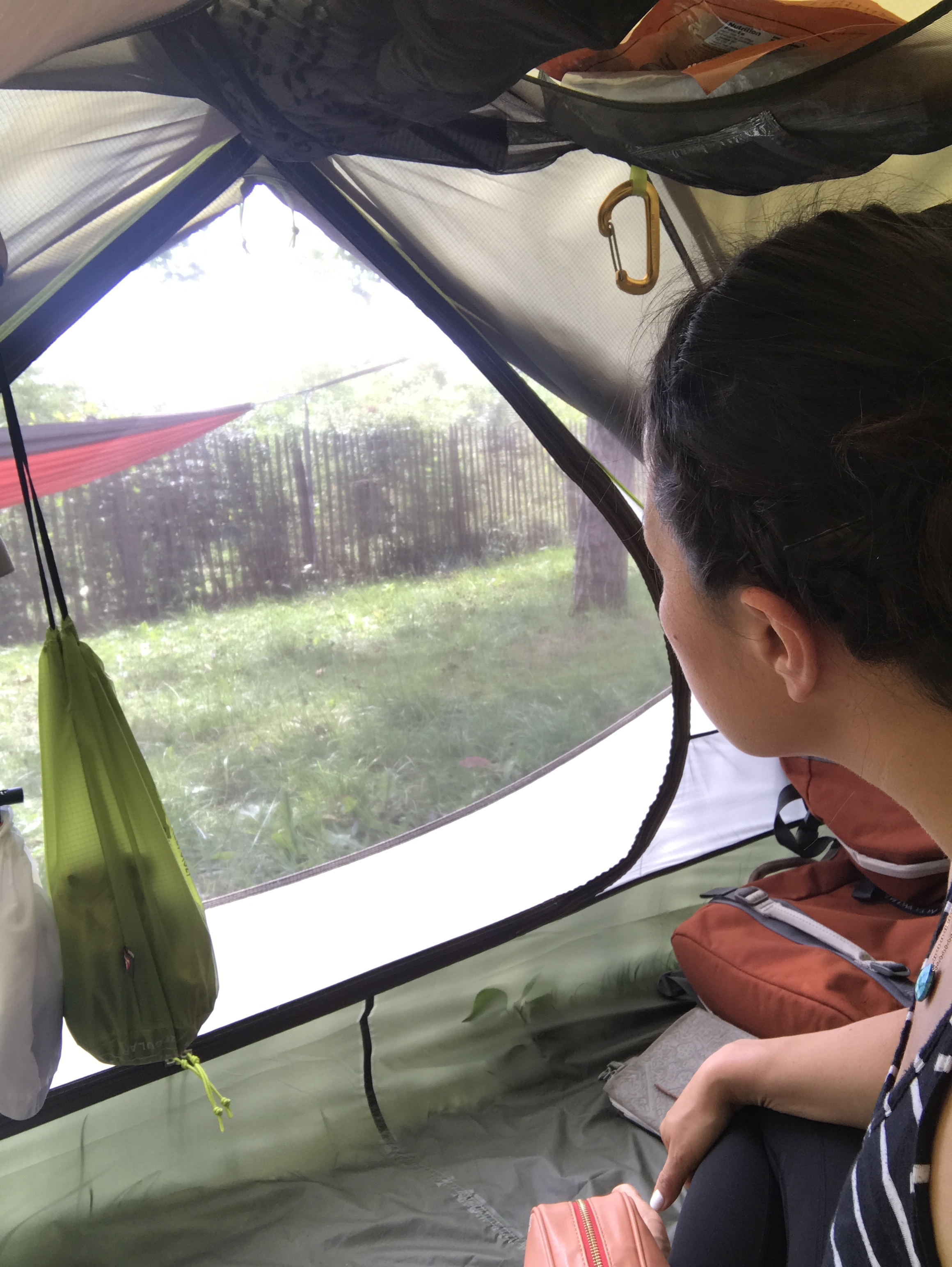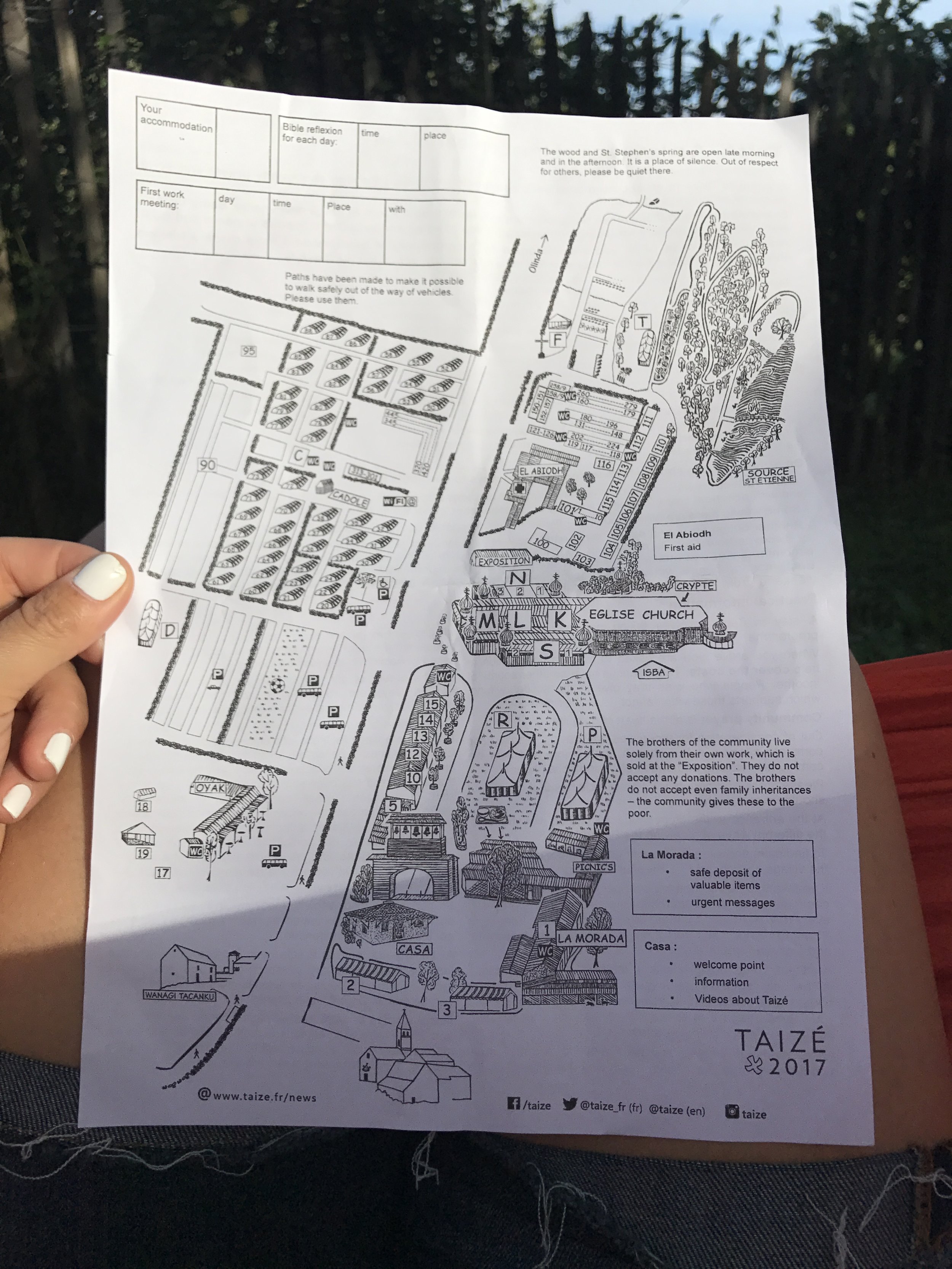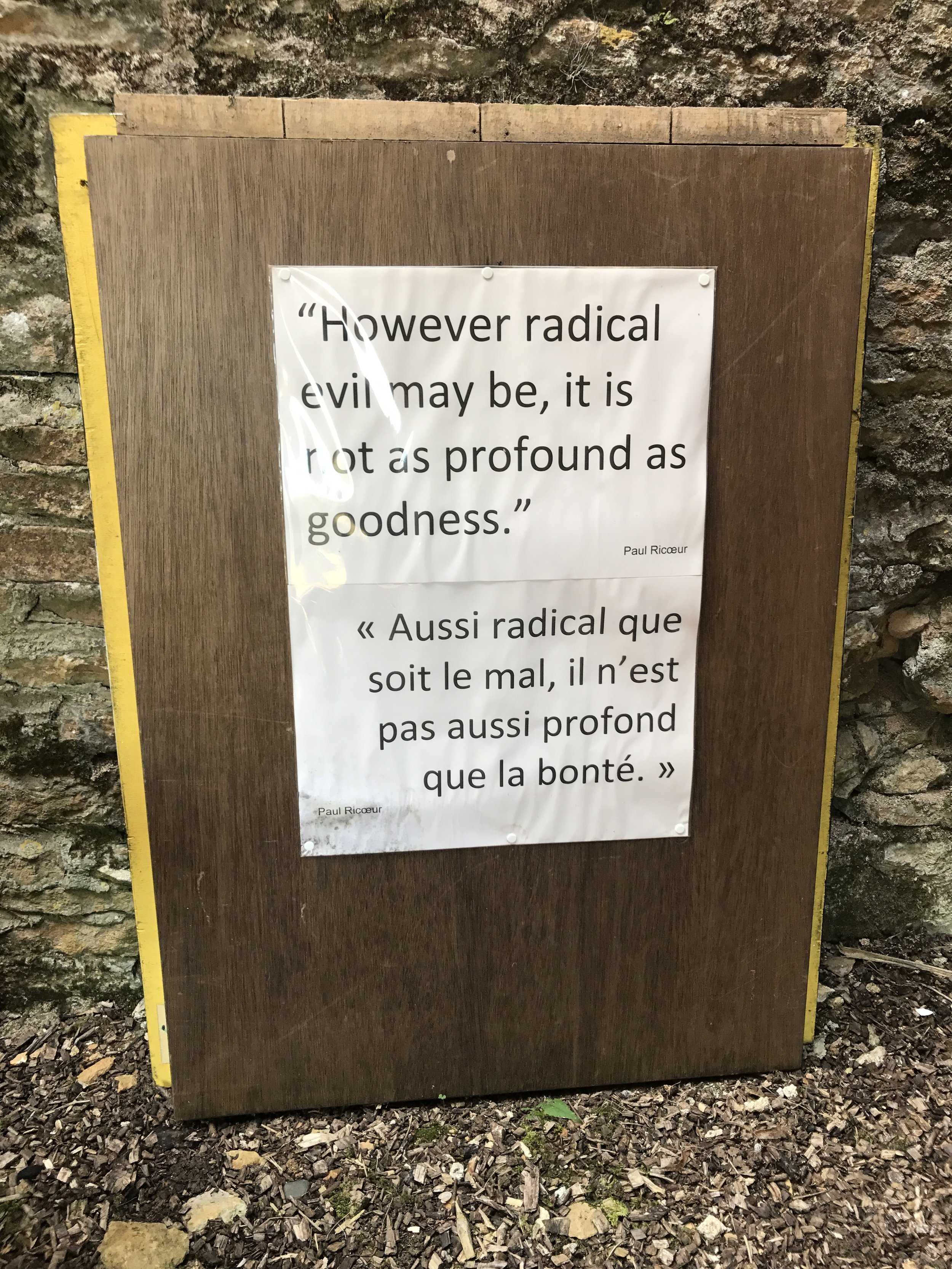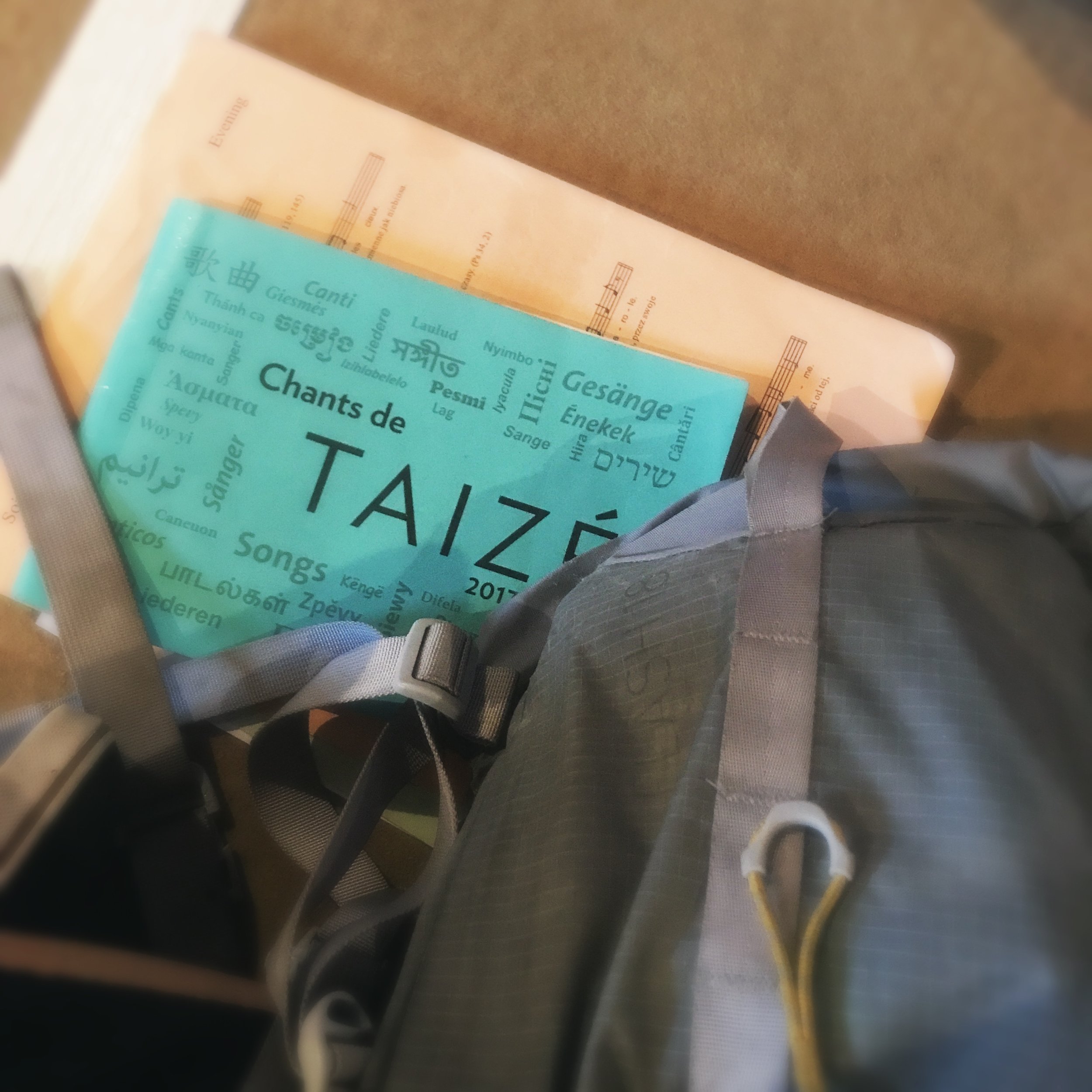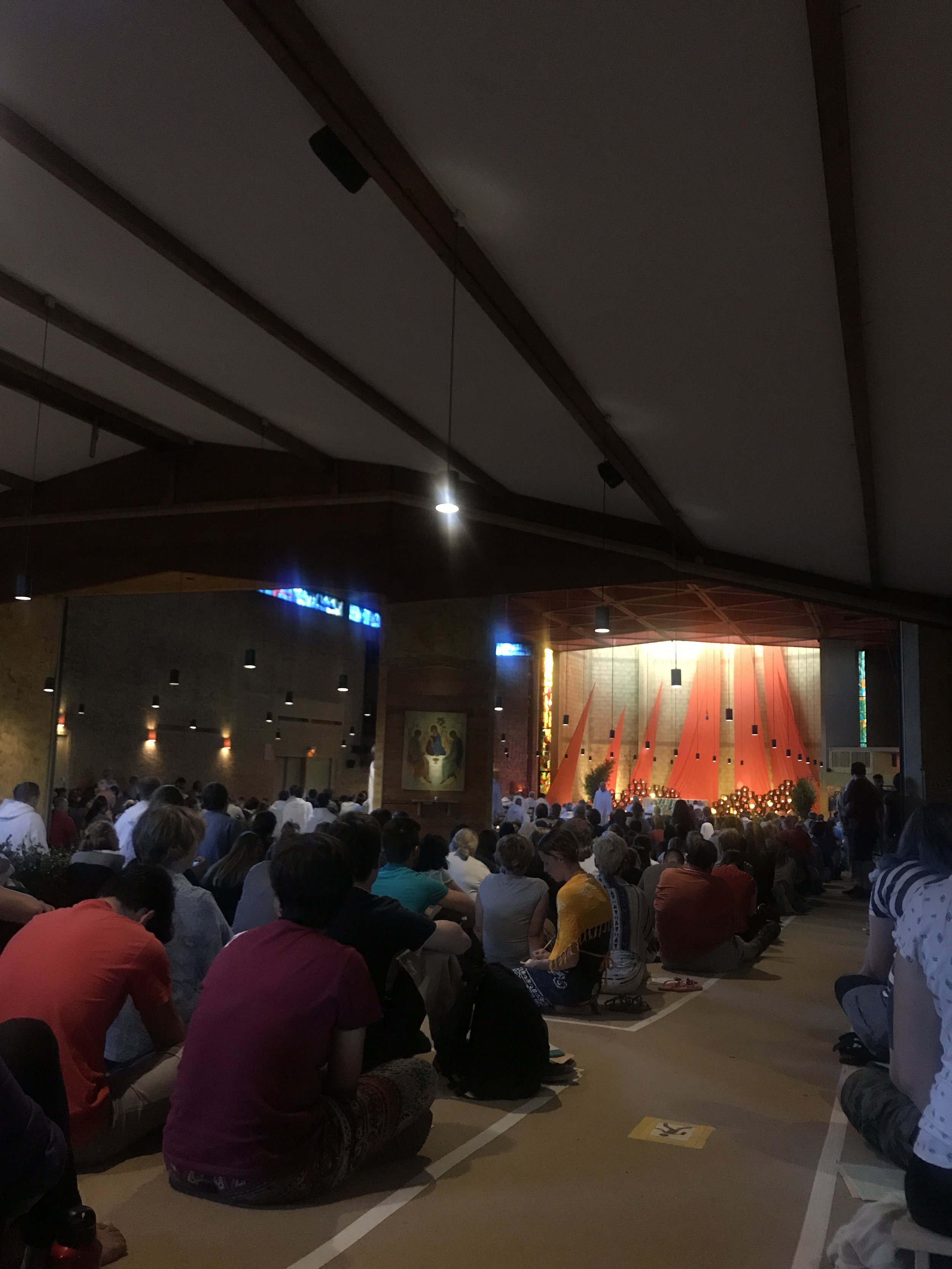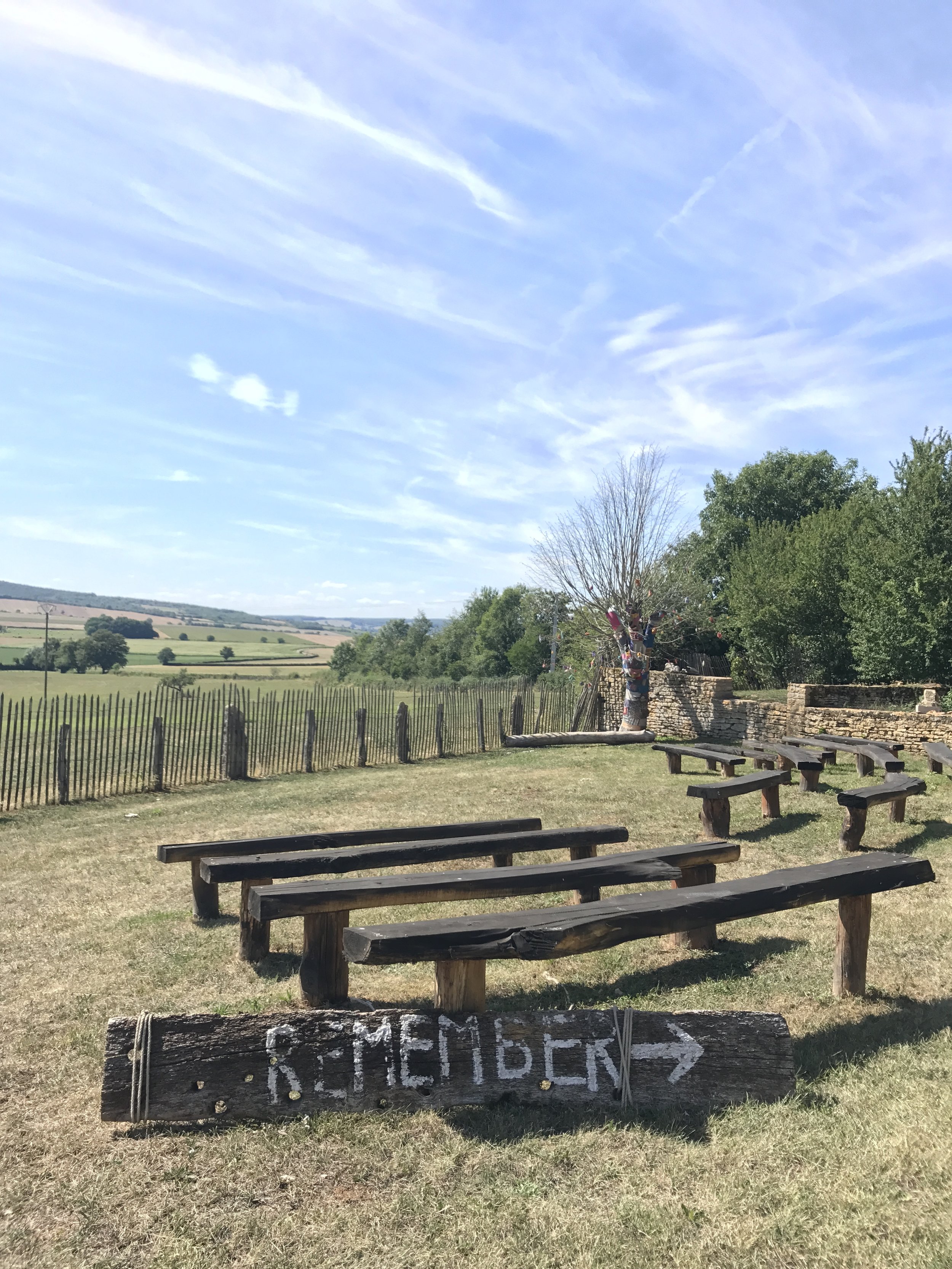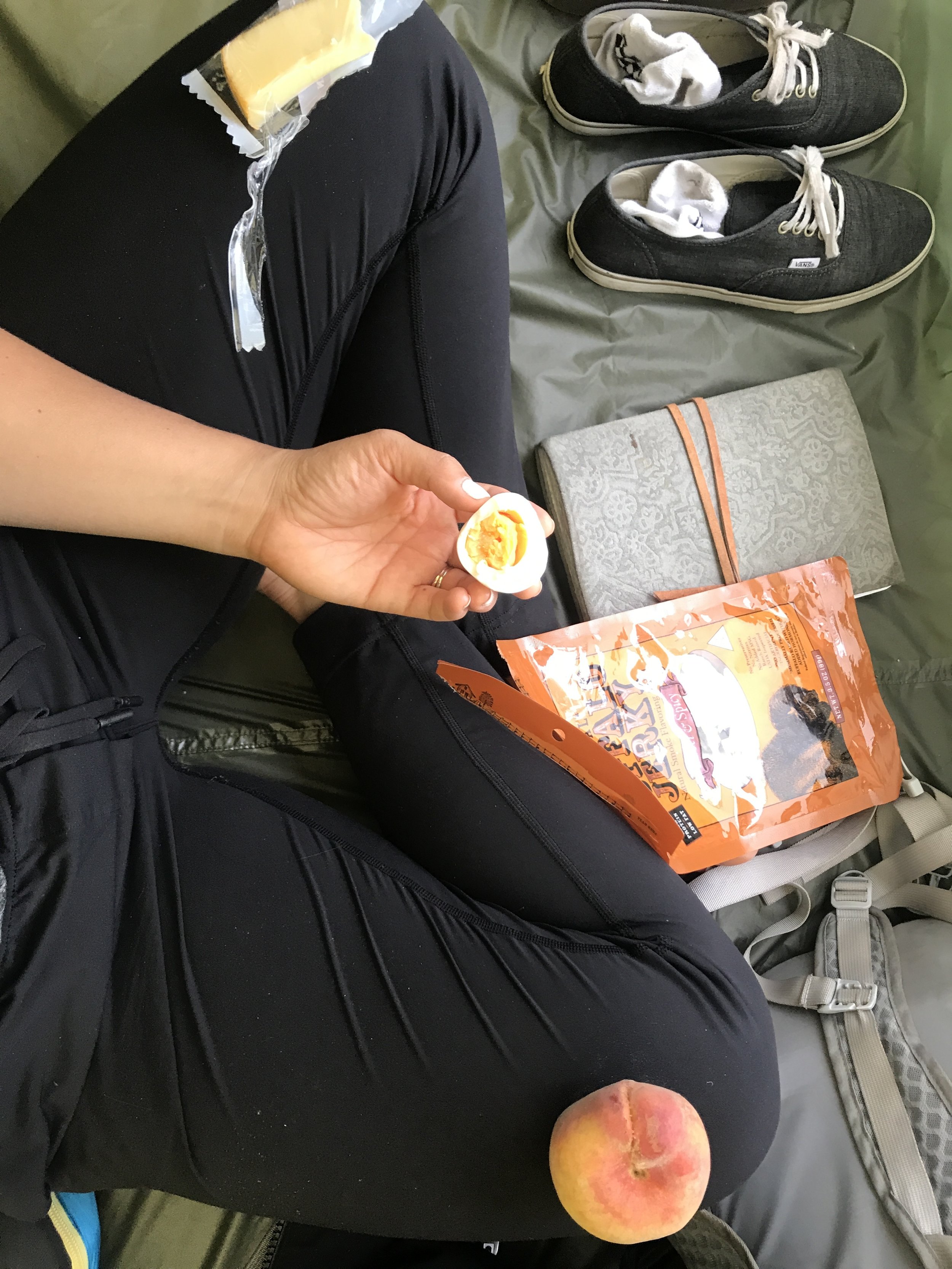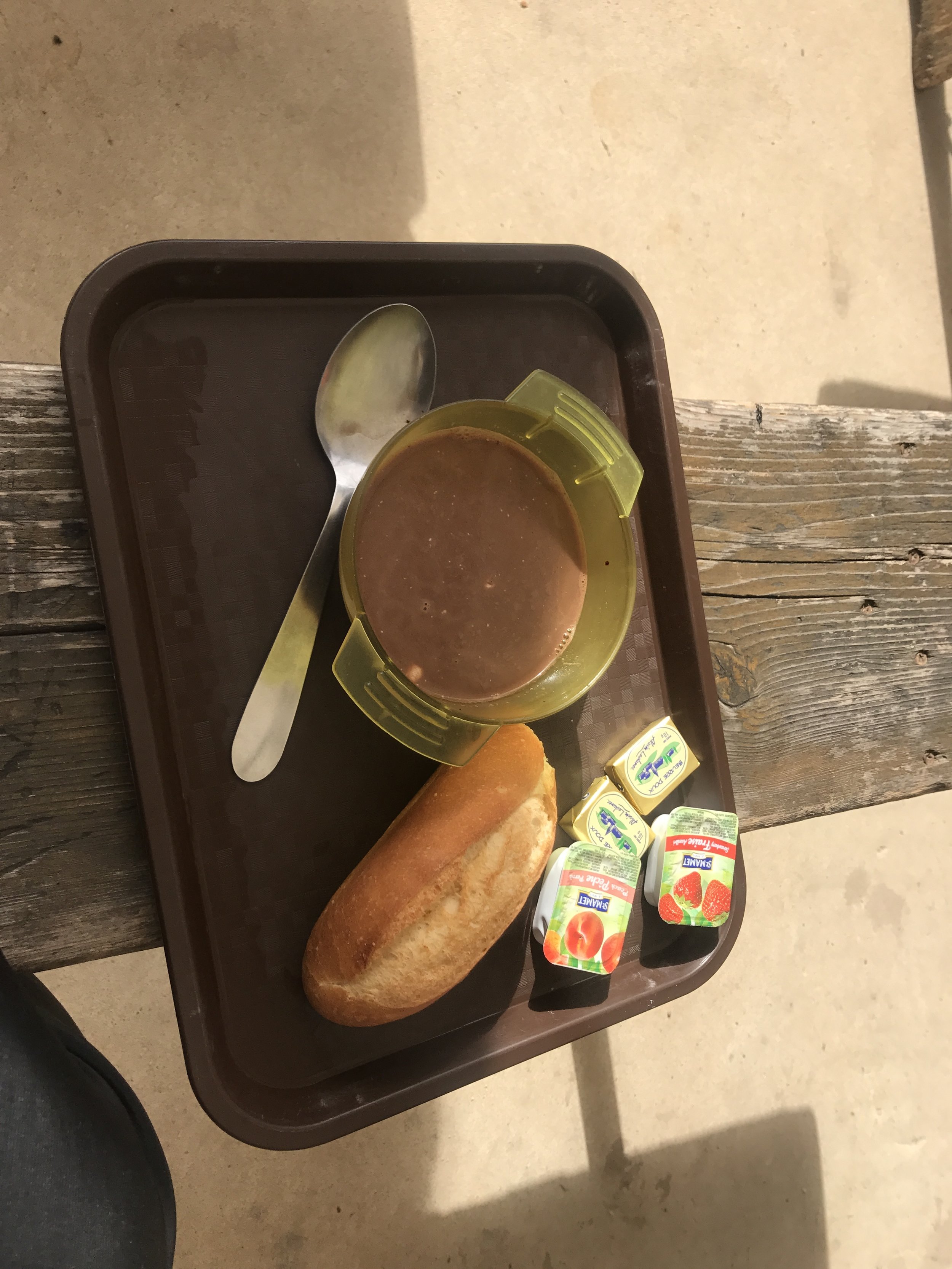In the (Mindfulness Based Stress Reduction) MBSR courses I have been a part of there is always a point in the eight weeks of 3-hour long classes that students are asked to pick a part of their daily life to practice mindfulness. Within the course students have been asked to practice mindful meditation for 20-30 minutes at a time every day. Introducing mindfulness into a daily task is suggested because - and I hope you’re ready for this harsh reality - but if you can only be mindful when you’re perched on your meditation cushion in a cloud of sage, you haven’t quite reached the heart of what has made a mindfulness practice really powerful.
As a reminder, being mindful is not a mysterious nirvanic achievement. It is “paying attention in a particular way: on purpose, in the present moment, and nonjudgmentally,” (Jon Kabat Zinn). The present moment is just that: wherever you are, whenever you are - fleeting by nature. Your quietest times of meditation are always worthwhile as a practice, but if we cannot bring this spirit of paying attention into our sleepy mornings, rainy Mondays, and hurried conversations, we’re missing out.
Some of the suggestions below may seem crazy to some of you who haven’t even touched a mindfulness practice and some of you may already be on your 300th day of one hour a day mindful meditation (seriously, you guys are mystifying to me). These ideas come from people I have studied under, students I learned alongside, and my own need to create space when life starts to feel a bit too tight. Whoever and wherever you are, I hope these ideas inspire and sustain your moment-to-moment practice.
Meditate while moving. The first is for those of you who are horrified at the idea of meditating in silence. In one of my first courses, a fellow student was struggling (as I still do!) with the body scan variation of meditation. This meditation is often recommended for people who struggle with falling asleep - so that should tell you why it can be problematic. My classmate said she had started using the body scan meditation when running. This practice changed both her outlook on the length of her run and the content of her meditation. Another person in this same class said they had started doing it on their commute - you know, without closing your eyes. Imagine how different traffic might feel?
Listen while you walk. The second practice comes from my mindfulness mentor, Aleezé Moss. There is a meditation called loving kindness or metta meditation that is often practiced in the final sessions of MBSR courses. One of my favorite samples of it can be found here. She mentioned in one class that she sometimes uses this (by memory) when she is walking from place to place in the city. Imagine your walk with the following phrases rumbling about in your head: “May you be peaceful. May you be happy. May you be as strong as you are able. May you live with ease of well-being.”
Lose the headphones. I can remember a time when I always had headphones in my pockets because I could never go from place to place without listening to music along the way. I’m not here to condemn or judge those of you who, like me, just enjoy when life looks like a musical. I have totally done that thing you do when you’re having a dead-in-the-eyes day and you put on your favorite beats to psych you up for a gym session that you don’t really want to go to. But really, I am here to question our habits and to tell you that I haven’t the faintest idea where my headphones are right now. It can be healthy to take a break from the norm of blocking out the outside and instead, letting sound (and maybe even thoughts?) in. I’ve been heckled too (seriously - even while very noticeably pregnant). I know these can sometimes be a protective measure. But I don’t want to reduce music to a defense mechanism anymore than I want to miss out on the birds that sometimes sing behind the hecklers.
Notice your transitions. This comes from a mentee within my mindfulness program at Jefferson. This one is pretty simple: when you get somewhere new in your day, take 1-minute to “check-in”. Checking in can be as simple as taking a few mindful breaths or seeing what’s in your mind (Anxiety? Excitement? Nothing much?) or even simply listening and looking with the intent to really see where you are. This practice could have a huge effect on how you meet your day, your meetings, or your family. In my own past life as a business owner, I would often schedule my times of formal practice for mindfulness around transitions - before or after often stressful meetings or conversations. This checking-in doesn’t need to be formal though, it can happen in a breath; it’s the pause that makes the biggest difference.
Eat mindfully. It’s not the first time you’ve ever heard it, I’m sure, but eating mindfully cannot only “make” your food taste better, ease your digestion, and automatically reinforce better nutrition choices - it can also give you an opportunity to be present in your normal everyday life. I love this short pithy video from Thich Naht Hanh on mindful eating: “Breakfast is an opportunity to practice.” This means you have to be doing just what you’re doing - eating. I, like the rest of 21st century humanity, often “unwind” by eating with technology, a book, a friend, etc. If the idea of going without these mechanisms for an entire meal sounds crazy to you, I might recommend beginning with a mindful cup of tea or coffee. Abstain from obvious distractions for a full cup, and watch the never-before-released present unravel before you.
When you walk your dog, walk your dog. This one’s obviously going to play to a more specific audience but it’s been mentioned so much in my classes that I’ve got to include it. In the first mindfulness class of the 8-week course we are asked to place stickers (STICKERS!!!) in individual places where we might find it useful to pause for a moment of mindfulness. One of the first places that came to mind for me was our dog leash. Maddox is a gem (as most of you know) but walking him can still feel like a chore sometimes as he likes to exert his maleness over every single solitary tree in Philadelphia. It’s amazing how different a walk feels when I try to walk like he does versus the other way around. I like him so much more! Mable on the other hand is a bit of a trigger for my stress-levels as of late as she can be a little leash-aggressive and tends to walk more like a sidewinder than a dog. At the end of the day though, she walks with slight paranoia paired with a slight amount of joy. I try to let myself enter into the joy bit to actually appreciate walks with her. She notices everything. I notice nothing. Isn’t it the ideal mindfulness habit to take walks with your dog where you try to actually walk like your dog does anyway - in the present? Something tells me having a kid is going to double my need for this type of practice.
Brush your teeth mindfully. You need to brush your teeth for at least two minutes anyway. Why not really embrace those two minutes in silence?
Do your best noticing in the shower. You know those times when you’re in the shower and you suddenly realize that you can’t remember if you’ve conditioned your hair yet? This is for you guys. And for me. Full disclosure: I shower only every three days or so (long story for another time) so this habit does retain a bit of its novelty when I give it a go. I find it best to ask myself some questions: What do I feel like? What is the feeling of water on my skin? What are the smells I am smelling? What is the sound of water falling like? There’s even a whole New York Times article about this one!
Laundry. This one has become all the more real to me as my pregnancy-related insomnia has increased. I wake up around 4am and since I can’t sleep, I fold laundry quietly in our bathroom. Usually this is about the same time that the baby decides to let me know it’s awake too so I enjoy sitting there with nothing to do but fold and feel. It’s kind of precious. I don’t know that I get to this moment in the same way when it’s Sunday night and I’m hurrying through a load that’s been chucked on our bed before it’s time to change the sheets and hop in them before the week begins. I’d encourage you to give it a go. Fold in the quiet and see how different it feels.
Dishes. Every now and then when I wash the dishes, a quote from Thich Naht Hanh’s book, The Miracle of Mindfulness pops into my head: “If while washing dishes, we think only of the cup of tea that awaits us, thus hurrying to get the dishes out of the way as if they were a nuisance, then we are not "washing the dishes to wash the dishes." What's more, we are not alive during the time we are washing the dishes. In fact we are completely incapable of realizing the miracle of life while standing at the sink. If we can't wash the dishes, the chances are we won't be able to drink our tea either. While drinking the cup of tea, we will only be thinking of other things, barely aware of the cup in our hands. Thus we are sucked away into the future -and we are incapable of actually living one minute of life.” You guys, it is SO hard to just wash dishes! From the other end of the spectrum, I love the writing of Brother Lawrence, a 17th century French monk on this topic:
O Lord of pots and pans and things,
Since I have no time to be
a great saint by doing lovely things,
or watching late with Thee,
or dreaming in the dawnlight,
or storming Heaven’s gates,
Make me a saint by getting meals,
and washing up the plates.
Warm all the kitchen with Thy Love,
and light it with Thy peace;
Forgive me all my worrying,
and make my grumbling cease.
Thou who didst love to give men food
in room, or by the sea,
Accept the service that I do-
I do it unto Thee.
I think it’s important not to forget the whole point of my practice of mindfulness and silence in the first place: I want to be alive to my life. I want to show up. This picture for this post was taken directly after my week of silence in Taizé. Look how not silent my mouth looks! After spending a week without speaking to anyone I ran into a boisterous college student from Chicago named Isaac while waiting for the bus in the midday sun for a serendipitous two hour stint. Isaac had been at Taizé on the speaking side of the fence. I hadn’t met an American in a long time. It was refreshing and weird to hear my meandering sounds make their best efforts at answering his many questions. What was silence like? Did I want to speak? Was it hard? What did I learn?
I’m still learning, Isaac. I love silence… most of the time; much more than I thought I would as someone who loves talking and words. But sometimes silence is hard, empty, dull, or frustrating. I want to speak first. I want to listen to music. I want to distract myself. All of these times will still happen, and do. But intentionally placing times of silence and mindfulness in my life keeps me aware of how much I’m coping with versus how much I’m choosing the texture of my attention. When I want to break silence, I want to know it’s worth it.
If you made it all the way to the end and you’ve still not been struck by any of these practices as resonating with you, I’d encourage you to check out David Geller’s fantastic series of articles on Meditation for Real Life. And of course, if I can be clearer or helpful to you anyway, please feel free to reach out! Thank you for reading!
To read about my experience at Taizé, check Part 1 of this post out.


